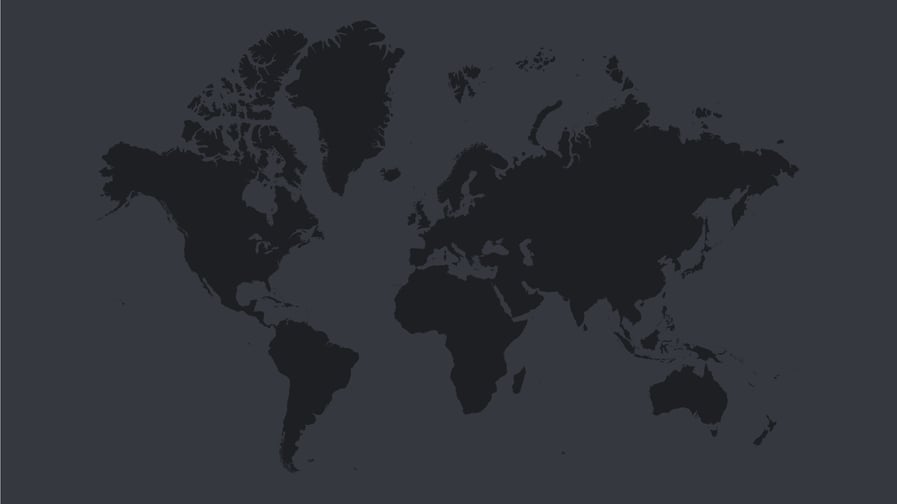Civil Unrest
Bangladesh
On 5 February, thousands of political activists protested outside the family home of ousted Prime Minister Sheikh Hasina in Dhaka, condemning a speech she delivered from exile in India. Demonstrators demolished and set fire to the building while Hasina’s speech was broadcast online. Additionally, protesters attacked other houses and businesses in Dhaka that belonged to supporters of the former Awami League-led government over the days that followed. No injuries were reported. Hasina’s speech marked the start of a month-long protest programme by the Awami League to denounce attacks on its supporters and attempt to build support. The political environment remains highly volatile, and further demonstrations and politically motivated attacks are likely over the coming weeks.
Terrorism
Australia
On 21 January, unidentified assailants spray-painted antisemitic slogans on the walls of a childcare centre in Maroubra District in Sydney, before setting the building on fire. This attack followed numerous incidents of antisemitic vandalism over several months, concentrated in Sydney’s eastern suburbs, which are home to a large Jewish community. Additionally, on 19 January, police in Sydney identified and confiscated a caravan containing antisemitic materials and explosives. There is no clear perpetrator behind the attacks, and no group has claimed responsibility. Police are investigating the possibility that foreign actors have paid local criminals to carry them out.
War
Syria
Since the ousting of former President Bashar Al Assad in December 2024, fighting between Kurdish- and Turkey-backed groups has intensified in northern Syria, centred around the city of Manbij, Aleppo Governorate. According to the Syrian Observatory for Human Rights war monitor, 392 people were killed in the clashes between the two groups in January alone. On 1 February, 10 Turkish-backed fighters were killed in and around Manbij, while nine others were killed in a car bombing in the city. The operation by Turkey-aligned groups, which aimed to advance towards Ar Raqqa, Deir Al Zor and Qamishli, has largely stalled along the Euphrates River, although heavy fighting continues. The new government faces substantial challenges in unifying the country’s array of armed groups, and further clashes are likely.
Civil Unrest
Lebanon
From 13 to 15 February, hundreds of Hezbollah supporters blockaded the roads surrounding Beirut-Rafic Hariri International Airport in Beirut, burned vehicles, vandalised property, and clashed with security forces. The protests were in response to the Lebanese government’s decision to ban Iranian planes from landing at the airport, amid Israeli allegations that Iran was smuggling funds to Hezbollah via passenger flights. In one incident, rioters attacked a convoy of UN peacekeepers travelling to the airport, injuring two personnel. The ban on Iranian planes, initially scheduled to end on 18 February, was extended indefinitely, and further protests are likely while tensions between Hezbollah and the Lebanese government persist.
Terrorism
US
On 1 January, a self-radicalised individual rammed a vehicle into a crowd during a New Year’s celebration in New Orleans, Louisiana, and engaged in a shoot-out with police. At least 14 people were killed and 30 others were injured. The attacker, a US citizen from Texas named Shamsud-Din Jabbar, was shot and killed at the scene. Jabbar was inspired by Islamic State (IS), making the incident the deadliest Islamist militant attack in the US since the 2016 Pulse nightclub shooting in Orlando, Florida. IS and other extremist groups retain a strong intent to attack the US. While robust counter-terrorism measures have substantially diminished the opportunity for coordinated attacks, self-radicalised individuals remain capable of launching sporadic, high-casualty attacks.
Political Violence
Ecuador
There were multiple incidents of violence in the lead-up to Ecuador’s legislative and general elections on 9 February, including a series of attacks on high-profile political figures. In a notable incident on 11 January, an unidentified assailant assassinated Eber Ponce Rosero, the mayor of Arenillas, El Oro Province. The rapid rise in criminal violence in recent years has transformed Ecuador from one of the region’s safer countries into one of its most dangerous as multiple transnational groups vie for control over key drug shipment routes, and target any political figures perceived to interfere with their illicit activities. While only the runoff election remains, political violence is likely to continue as criminal organisations continue to battle for territorial control.
Civil Unrest
Peru
On 22 and 23 January, unionised transport workers went on strike countrywide to demand increased government action to combat violent crime targeting interprovincial trucking operations. Demonstrators also demanded the resignation of Juan José Santiváñez, the Interior Minister, over allegations of security failures. Bus drivers, taxi drivers and other transport workers have participated in repeated work stoppages in recent months over security concerns, causing significant disruptions to transport services across the country. Demonstrations are likely to continue amid persistently high levels of extortion targeting transport workers in Peru.
Civil Unrest
Serbia
Since November 2024, countrywide disruptions have occurred almost daily following the collapse of a train station roof at Novi Sad station, which killed 15 people. Protesters argue that government corruption and nepotism were to blame and have demanded accountability and justice for the victims. The largest demonstrations, increasingly led by students, have taken place in Belgrade and Novi Sad, often drawing tens of thousands of people and involving blockades. Strikes across the private sector have accompanied the protests, while farmers have frequently joined demonstrations in major cities, often staging go-slow rallies with agricultural vehicles. Given the high levels of anti-government sentiment in Serbia, sustained unrest is likely in the coming months.
Terrorism
Germany/Austria
On 13 February, an Afghan asylum seeker drove a vehicle into a labour union demonstration in Munich, Germany, killing two and injuring at least 37 others. Meanwhile, on 18 February, a Syrian national killed one and injured five in a stabbing attack near the Hauptplatz in Villach, Carinthia Province, Austria. Attacks by lone Islamist extremists, often using methods such as stabbing and vehicle ramming, remain a concern in Europe. While enhanced security and intelligence measures have been effective against sophisticated plots, the unpredictable nature of lone actor attacks makes them harder to prevent.
War
Sudan
In January and February, the Sudanese Armed Forces (SAF) made a series of territorial gains, recapturing Wad Madani, the capital of Al Jazirah State, from the Rapid Support Forces (RSF), as well as the Khartoum Oil Refinery. They also advanced in Khartoum and its surrounding areas, retaking the besieged Signal Corps headquarters in Khartoum North, which had been surrounded by the RSF since the conflict began in April 2023, while also making gains in North Kordofan. Despite these advances, the RSF remains entrenched in its strongholds in Darfur, and with both sides continuing to receive external support from regional actors, a sustainable resolution to the conflict remains unlikely in the coming months.
War
Democratic Republic of Congo
In January and February, the M23 rebel group captured the provincial capitals of North Kivu and South Kivu, Goma and Bukavu. The group has since moved towards other strategic cities, including Butembo, a gold-rich commercial hub in North Kivu, and Uvira, a South Kivu port vital for the DRC’s trade with Zambia, Tanzania, and Burundi via Lake Tanganyika. Rwanda’s support has been key to sustaining M23’s offensive, further escalating regional tensions with countries such as South Africa and Burundi. Unlike in 2012, when M23 had captured Goma before retreating from the city, Congolese and foreign forces have struggled to repel the rebels. The group will likely consolidate and expand its control in the region.




